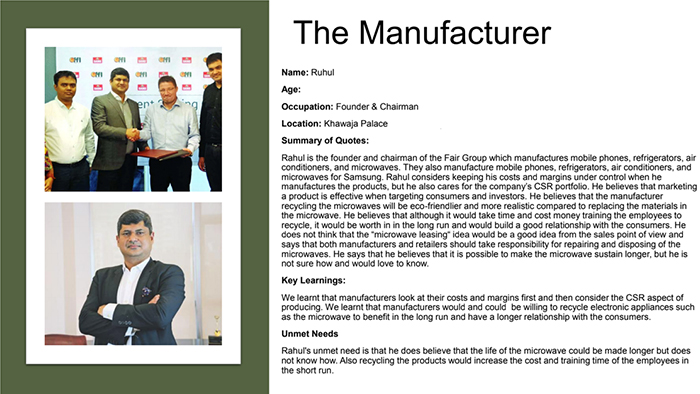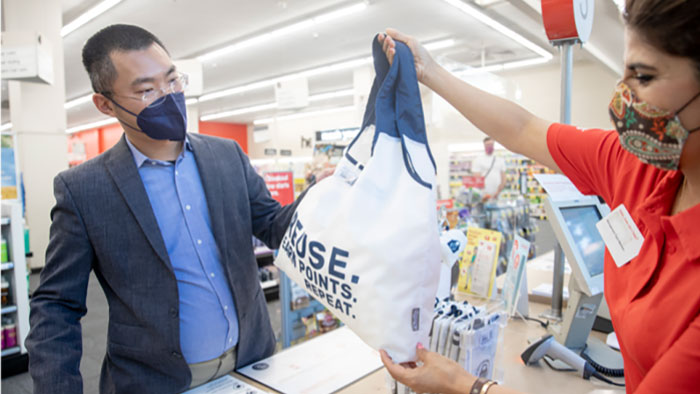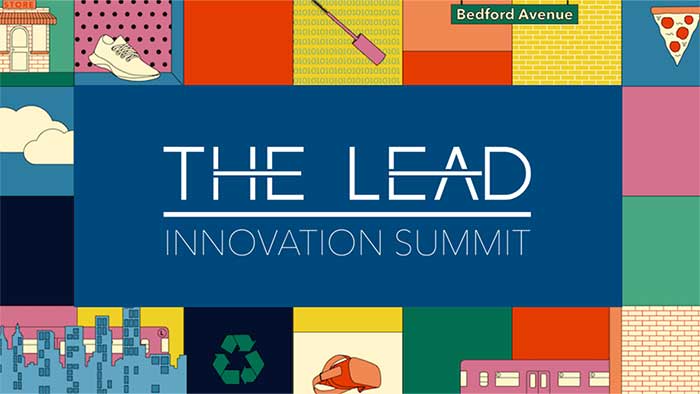Stakeholder Engagement in Design Thinking
Week 3 of the Global Retail Challenge
- By [ Katie Nicholos ]
- 10/21/2019
This week’s assignment was designed to give students an opportunity to learn from stakeholders. This step helps the students arrive at solutions that work for everyone. It also accelerates their exposure to design opportunities that they might never have imagined and helps them challenge assumptions they may unknowingly hold. Each student was required to interview one stakeholder from across their project’s value chain; teams then summarized their learnings in the form of user-centered posters.
Jessica Lida, Sustainability Operations lead at lululemon and Beth Kreider, Corporate Responsibility Manager at Qurate Retail Group, facilitated a wonderful feedback and Q&A session on the students’ Week 3 assignments. In addition to direct feedback on their individual assignments, the students continued to discuss a question that has emerged almost every week around whether it is more beneficial to create new circular products and services or implement small sustainable changes to current products?
Mentors in Week 2, Lauren and Chelsey, pointed out that technology does not yet exist to solve many circular problems and that companies like Nordstrom Inc are making investments in new technologies that they can test before scaling them across their systems. Many solutions might be very local in implementation and incremental innovation has a useful place in the development of long-term solutions. Last week, Darien and Susan shared a similar point of view and said that circular solutions that may seem incremental can create sparks of change or be a catalyst for change that are just as important as solutions that seem to exhibit the potential for large-scale implementation. And this week, Jessica and Beth shared with the students that a crawl-walk-run approach is a great way to gain traction and appeal to a broader range of stakeholders, stating that it is important to meet people where they are and tailor solutions for specific needs.
These three similar points of view highlight the value of all innovation and not just large-scale disruption. Innovation is often equated with disruption, but innovation exists in small hidden opportunities as well.
Jessica and Beth awarded top honors to six teams this week:
- Team 1 - Ecole des Ponts,
- Team 6 - Florida State University,
- Team 8 - University of North Carolina Chapel Hill,
- Team 10 - Ohio State University,
- Team 13 - Ritsumeikan Asia Pacific University A, and
- Team 14 - Ritsumeikan Asia Pacific University B.

Take a look back at our first two weeks:
| Week 1 | Week 2 |






